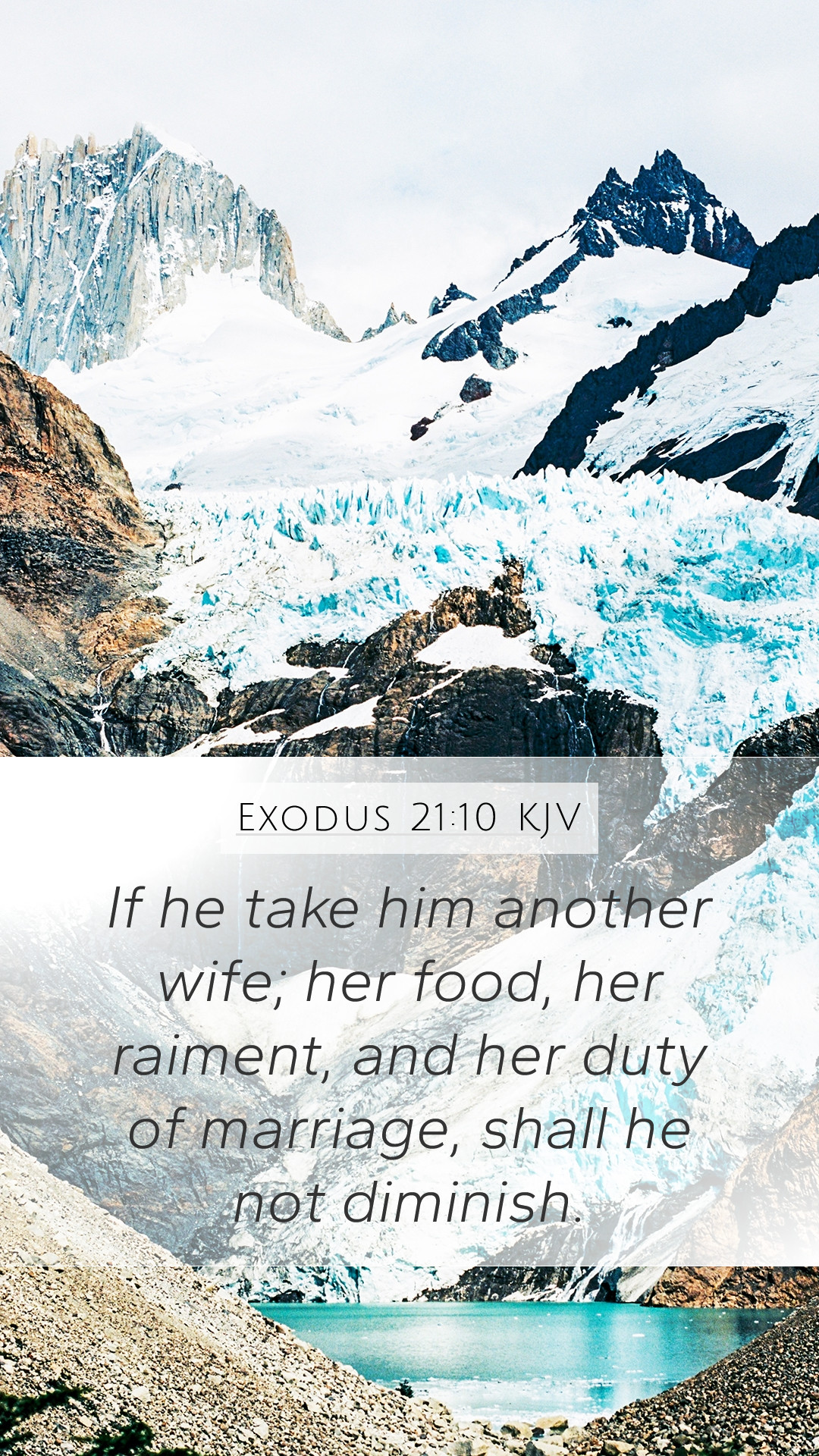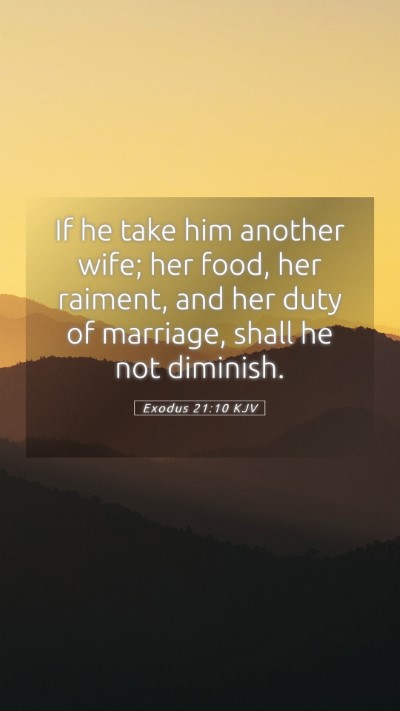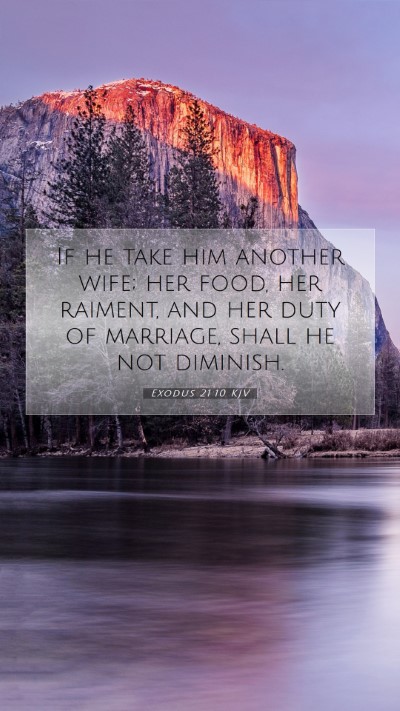Understanding Exodus 21:10
Exodus 21:10 states: "If he take him another wife; her food, her raiment, and her duty of marriage, shall he not diminish."
This verse provides guidelines on the responsibilities of a man when he takes a second wife, emphasizing the need for equitable treatment toward both spouses.
General Insights
- Responsibility: The man is obligated to provide for both wives, ensuring their needs are met, which highlights the biblical principle of care and responsibility within marriage.
- Equity in Relationships: The verse underscores the importance of fairness, suggesting that taking an additional wife does not exempt a man from fulfilling his duties to his first wife.
- Family Structure: This text reflects the cultural practices of the time regarding marriage and polygamy, and it lays the foundation for understanding God's expectations within marital relationships.
Bible Verse Meanings
The meaning of this Bible verse can be examined through various commentaries:
Matthew Henry's Commentary
Matthew Henry focuses on the duties expected of a husband towards his wives. He notes that the requirements for food, clothing, and marital relations are basic needs that must not be neglected. This reflects God's concern for justice and equity among His people.
Albert Barnes' Notes on the Bible
Albert Barnes adds that the passage illustrates the legal considerations of the time, where the law sought to protect the rights of women in a polygamous society. He suggests that this commandment serves as a safeguard against neglect and emphasizes the importance of keeping commitments made in marriage.
Adam Clarke's Commentary
Adam Clarke elaborates on the implications of the verse, suggesting that it aims to ensure that the husband's attention is not diverted away from fulfilling his obligations to each wife. Clarke also highlights that this regulation points towards a greater biblical principle of love and provision within familial relationships.
Contextual Understanding
To deepen our Bible verse understanding, it's essential to look at the historical and cultural context. In ancient Israel, polygamy was practiced, and Exodus provides guidelines to mitigate potential injustices. This underscores an important theme in biblical law, which often seeks to protect the vulnerable in society.
Application to Daily Life
When applying this scripture to contemporary life, one can reflect on the broader principles of commitment, responsibility, and care within all kinds of relationships, questioning how these ancient laws can translate to modern marital expectations. The application of Bible verses in today's context encourages personal integrity and mutual respect.
Cross References
- Deuteronomy 21:15-17 - Discusses the rights of the firstborn in the case of a man with two wives.
- 1 Timothy 5:8 - Emphasizes the importance of providing for one's own household.
- Malachi 2:14-16 - Addresses God's view on marriage and fidelity.
Conclusion
This verse not only outlines responsibilities in a polygamous marriage but also sheds light on God's values concerning family dynamics. Hence, studying these passages contributes significantly to our Bible study insights and enriches our understanding of Scripture.
Further Study Resources
- Engage in Bible study groups to discuss the implications of this text.
- Use Bible study tools and Bible study resources for deeper analysis.
- Explore Bible study guides and lessons specifically covering ancient Israelite laws.
Through in-depth Bible verse analysis, we can unfold the layers of meaning in passages like Exodus 21:10 and better appreciate the richness of biblical teachings!


